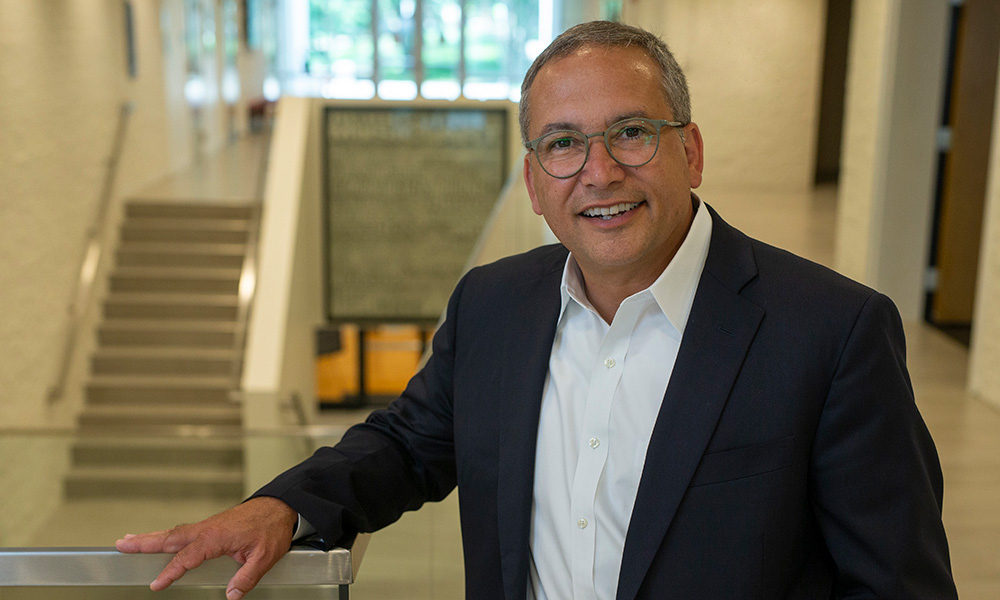At the start of the COVID pandemic, we predicted that higher education would experience a decade’s worth of change in a short period of time. The trends would not be new, but COVID would accelerate them. Trends are like water. The faster they move, the deeper they cut and in unexpected ways. Our prediction turned out to be true and perhaps even understated. There are profound changes going on across higher education, including:
- Technology infuses most aspects of higher education. Technology is impacting our work in student recruitment, fundraising, career preparation, and alumni engagement. At universities, including Denison, faculty are using technology more often in courses and interactions with students.
- Choice shapes higher education. Universities continue to develop a wide range of academic offerings. Students also have an array of choices in how they study, including courses offered in classrooms, online, hybrid, or hyflex. Students have choice in who they study from: Google offers certificates, and Guild Education and 2U partner with universities to offer online and/or degrees connected to the workplace.
- Expectations continue to both increase and expand, as students and families have an increasing array of needs and expectations for the services and support that they expect colleges offer. No college can be all things to all people. But all colleges will be expected to do more for their students. This requires colleges to be more clear with themselves and prospective students about what they can and cannot offer.
- Concerns about colleges not preparing students for careers. Students continue to be forced into a false tradeoff between the liberal arts foundation they need to succeed long-term, the pre-professional skills they need to succeed in their first job. Universities need to move away from the “either/or” mindset. Students need both. Denison has become a leader in this area with our work through the Knowlton Center for Career Exploration and work done by our faculty, including new academic programs in data analytics, global commerce, and a variety of other fields.
- Leaders and institutions are expected to lean into larger public issues. There is growing pressure on all organizations, including universities, to operate in ways that address public issues, especially around three key topics: economic inequality; climate change; and equity, diversity, and the legacy of racism in the United States.
We entered the COVID crisis healthy with exceptionally strong admissions metrics; talented and committed faculty and staff; clarity in our purpose; and a large endowment and financial health. This year, we will once again have record numbers of applications. Applications have increased by nearly 150 percent since we launched our 2015 strategic plan and now stand at well over 12,000 applications for 620 spots.
We are adjusting to the changing landscape. Examples include our work to use technology to do alumni events differently; the continued expansion of the curriculum with new academic programs this year in journalism and Earth & environmental sciences; the Denison Forward initiative to address issues of diversity, equity, and inclusion on our campus; construction of the Ann and Tom Hoaglin Wellness Center to focus students on developing the life habits of resiliency and health; and the opening of Denison Edge in downtown Columbus to offer credentials and programs that close skills gaps for students and recent alumni.
Our most important work remains our investments in our people. We continue to be a leader in financial aid for students — we are one of a few colleges in the country that meets the full demonstrated financial aid need of every student we accept. Last year, we made more than $65 million of financial aid available. In addition, we have raised starting wages for our staff, especially for hourly staff, and we are currently looking at ways to tap into new forms of education to increase professional development for all staff. Perhaps the most important investment of resources we make is in our faculty. Denison has always been a college with world-class faculty who are incredibly committed to our students. Our faculty are incredible educators, advisors, and mentors.
In my view, mentorship is what separates a good college experience from a life-shaping one. When I arrived at Denison, I was struck by how naturally and powerfully it happens on our campus. I was also struck by how often students talk with gratitude about our faculty.
Nine years into my time at Denison, I am remarkably proud to be a Denisonian and grateful to work with our faculty, staff, alumni, parents, and friends to focus on giving our students a life-shaping liberal arts education that unlocks their potential to be the architects of their lives.
IN THIS ISSUE: We have included a series of profiles of faculty with their observations on the challenges and rewards of being university educators at a place like Denison. As you read their words, I suspect it will bring back memories of the faculty who shaped your time at Denison and beyond. If you feel compelled, please share the stories with me at president@denison.edu.

